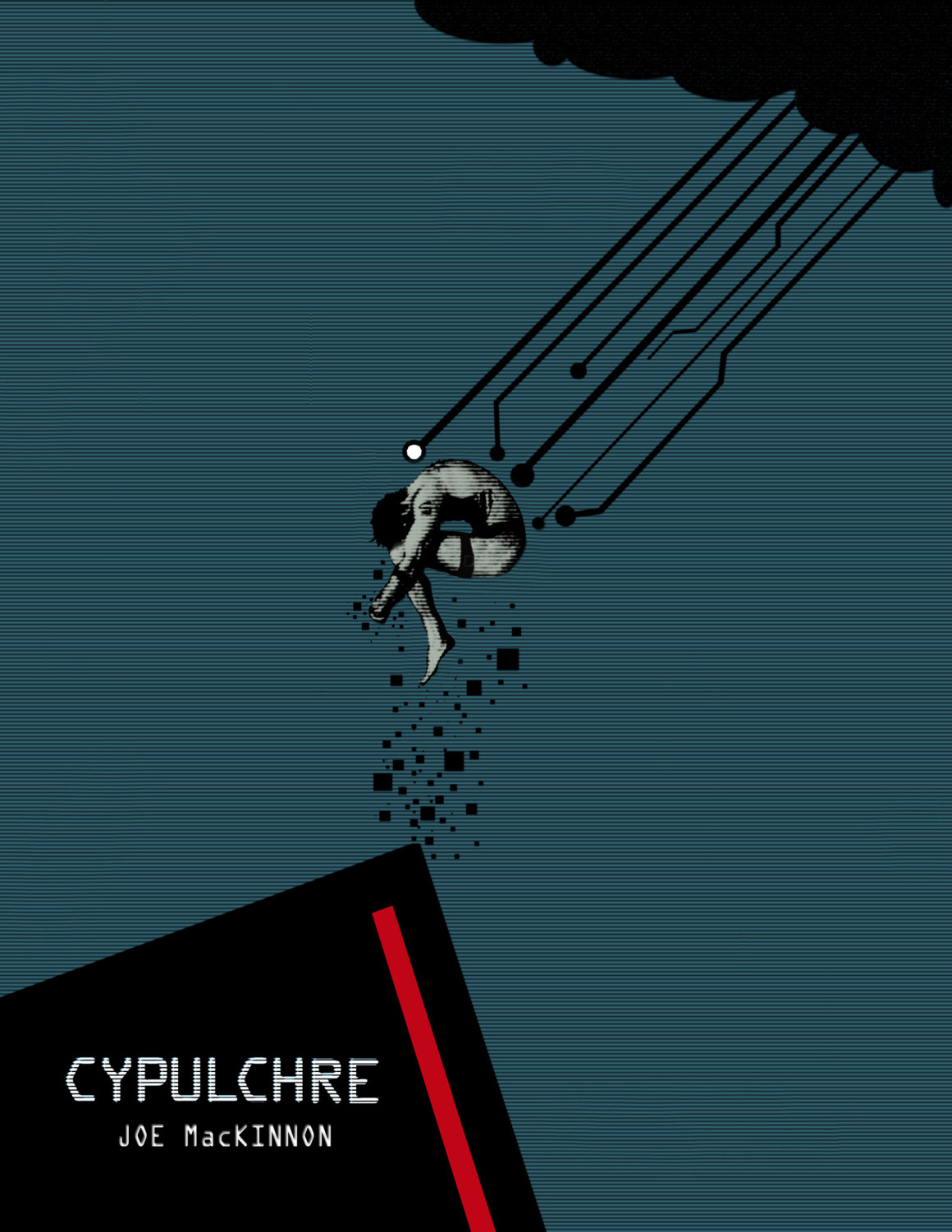
Local sci-fi author questions technological dependence in Cypulchre
By Connor Sadler, September 11 2014 —
Cypulchre, the latest novel from Calgary sci-fi author Joseph MacKinnon revolves around the creation of the Cloud, a futuristic technology that lets users explore the “noosphere,” an internet-like plane of existence where everything is shaped by your thoughts.
Cypulchre’s protagonist, Paul Sheffield, is the washed-up creator of the technology who loses everything due to circumstances surrounding the creation of the program. Isolated from former colleagues and family, Paul is determined to bring down his creation, disgusted by what his technology has done to society.
The novel is a sci-fi cyberpunk thriller that seems predictable at first, but occasionally derails the original plot to explore the dystopian world or develop Paul’s character.
Early in the novel, Paul suffers from paranoia and schizophrenia, adding some needed depth to the plot, leaving the reader wondering if the roadblocks in Paul’s path are coincidental or part of a larger conspiracy.
This plot depth comes at the cost of pacing. Pages drag on as Paul is lost in paranoid delusions or driving across a city to attempt to reunite with his family and save them from the technology.
The novel deals with many themes, but in the end they all relate to how technology changes society. Paul sees every aspect of the world that Cloud has brought — from the elite living in the city’s core who are constantly connected to the noosphere, to those in the slums barely scraping by.
There’s an exchange between Paul and a store clerk early in the book where the clerk only disconnects from the Cloud long enough to help Paul, then immediately goes back to the virtual world.
It’s apparent that Paul detests not the technology itself, but how it has ended most human interaction, allowing a totalitarian government to be established by the Cloud controlling corporation.
In the world of Cypulchre, class lines are based on who can afford “airtime” to connect to the Cloud and those who live out their ordinary lives in poverty.
“Cyberpunk frequently deals with high tech and low lives, and the inverse relation between the two,” says MacKinnon. “By injecting elements of Greek mythology into the mix, I felt I could elevate the tragedies of my low-life characters without ascribing to them unrealistic qualities or aspirations.”
With a genre as popular as science fiction, clichés are unavoidable. At times the novel seems like a derivative of George Orwell’s 1984, with oppressive governments and the elimination of critical and independent thought. Further adding to the clichéd feeling, the world of Cypulchre is host to many ‘50s sci-fi standbys such as food printers, but if you look past the clichés, the novel has a technologically realistic atmosphere befitting of dystopian fiction.
MacKinnon has crafted a believable world in Cypulchre, a dystopian future where critical thought has given way to virtual pleasures and the wants of the rich are favoured over the needs of the poor. The book warns readers about not losing themselves in technology or mindless distractions, but I think it’s a lesson that anyone who uses the Internet has heard from their parents at one time or another.
